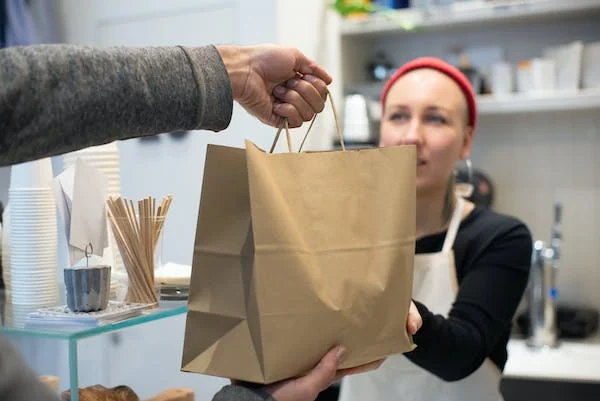Being a waiter and waitress can be a tough job. They have to be on their feet throughout their shift, deal with the customers, take orders, and accommodate special requests. Although this might seem an easy task but in reality, it isn’t. Restaurants tend to be highly sociable areas where friends and families gather during the weekdays especially the weekend to have a nice lunch or dinner. In many restaurants, you will see both waiters and waitresses working side by side to serve the customers. This begs the question do waiters do different tasks than waitresses? Well, let’s find out.
Responsibilities of a waiter and waitress
Taking Orders
The first responsibility of a waiter and waitress is taking orders. When a customer walks into the restaurant, give them a few minutes to settle. Once they have settled down, the waiter or waitress should ask them if they are ready to order. If they require a few more minutes, step back, and wait for them to become comfortable. Make sure that you do not jump in as soon as they sit at the table and are engaged in a conversation. It is rude and does not speak highly of your professionalism.
Once the customer is ready to order, take your notepad and begin noting down the orders. Furthermore, make sure that you inform the customers about any specials that the restaurant is offering as well. Moreover, it is your responsibility to memorize and become as familiar with the menu as possible so that you are able to answer any query put forward by the customer. If the customer is ordering something he/she is not sure of, you should ask about any health concerns as well. For instance, diabetic people should not be having a dish that is too sugary. Therefore, inform them of any such ingredients or dishes that might pose a threat to their health.
And last but not the least, when it comes to taking orders perhaps the only difference between waiter and waitress is that waiters are mostly expected to lift and carry heavy dishes and food items from the kitchen to the table since waitresses are not typically capable or used to lifting heavy weights.
Accommodating Requests
The next responsibility is related to accommodating the requests of the customers. By requests, we mean that sometimes customers walk in with special and unique demands for whatever reasons. Try your best to accommodate their demands or ask your supervisor/manager whether the request can be accommodated. Sometimes waiters or waitresses tend to reply “no” immediately, which makes you appear unprofessional. Take your time to think and if the request cannot be accepted, then politely excuse the customer by presenting a reason.
Top Waiter/Waitress Skills
Communication
A good waiter and waitress should possess extraordinary communication skills. It is one of the most important skills required by the profession. Both waiters and waitresses need to be active listeners and engage in communications in a friendly yet professional way. A good waiter or waitress should be able to remember the needs of the customers so that he/she is able to clearly communicate their preferences clearly to the cooking staff. In addition to that, they should also remember and convey any messages, should the kitchen wish to communicate anything with the customer.
Customers while trying and selecting different dishes tend to have a lot of questions. A waiter or waitress should be able to answer them having a full grip on knowledge and information. This allows them to satisfy the needs of the customers efficiently and effectively.
People Skills
Another important skill a waiter or waitress should possess is people skills. What we mean by that is a waiter or waitress should maintain a high level of interpersonal skill. Since restaurants came sometimes be quite hectic and stressful, the waiters and waitresses, as a result, can become a bit rude. To avoid such situations, the waiter or waitress should be polite, courteous, and friendly. Even if the customer is a bit rude, you should hold your ground or ask your manager or supervisor to handle the situation.
Bearing
When restaurants are busy, everyone including the waiters and waitresses is seen in a hurry or rush. This is exactly what you should not do. Instead, remain calm and focused. Running from one table to another will result in forgetting the special requests and orders of the customers, adding fuel to the fire. The key is to remain calm under stress. Keep your focus on the task and be attentive. This will make things a lot easier. The reason being that when you are honed in on the details of the orders, you will know exactly what to do and will not waste time on things that result in order delays or wrong orders.
Multi-Tasking
It goes without arguing that restaurants are a busy place. While you are taking orders, you have to welcome and greet other customers as well. This is where you need to multi-task. Sometimes one table will be ordering cocktails while the other has moved onto dessert. As a result, each table moves through its own little lifecycle depending on the initial seating to paying the check.
While multitasking is a great skill, it carries some disadvantages as well and one of the biggest is losing focus. If you are new to this profession, you will find it hard to multi-task at the beginning. With so much noise and the staff running everywhere, losing focus is easy. However, with time you will develop the skill and find it comparatively easy to serve multiple customers at the same time.
Good Memory
Each customer is unique. Some will request and order a certain meal with different ingredients. While others will request lemon in their sodas. Such intricate details and requests are easy to forget. To avoid such situations, always carry a pad and pen but other than that a waiter or waitress should possess an innate ability to remember all kinds of mundane details.
Teamwork
A waiter or waitress cannot offer optimum performance if he/she is not able to work as a team. Being a team player is probably the most important skill in the restaurant industry. You have to work and communicate with your colleagues and supervisors to make sure orders are not delayed and the needs of the customers are satisfied. This also means that if you have free time, help your colleague to clean the tables and carry the dishes to the kitchen.
Final Word
Both waiters and waitresses in a restaurant perform more or less the same tasks. Furthermore, they also possess the same set of skills and capabilities. However, when it comes to lifting heavy items, waiters are expected to perform the task. This does not mean that the waiters are any different from the waitresses who are comparatively much more in demand today than ever due to their communication skills, personality, and many other traits.

